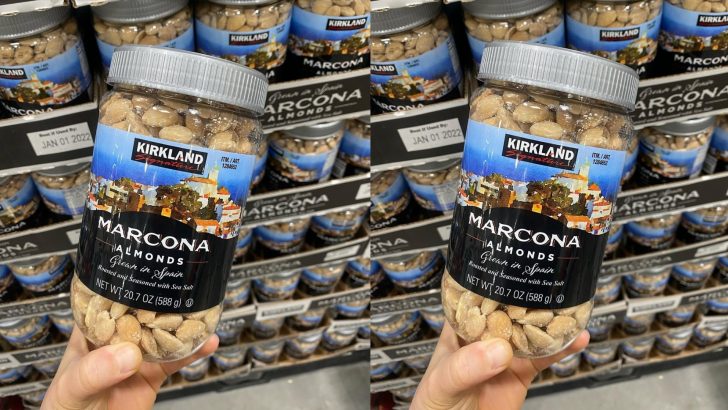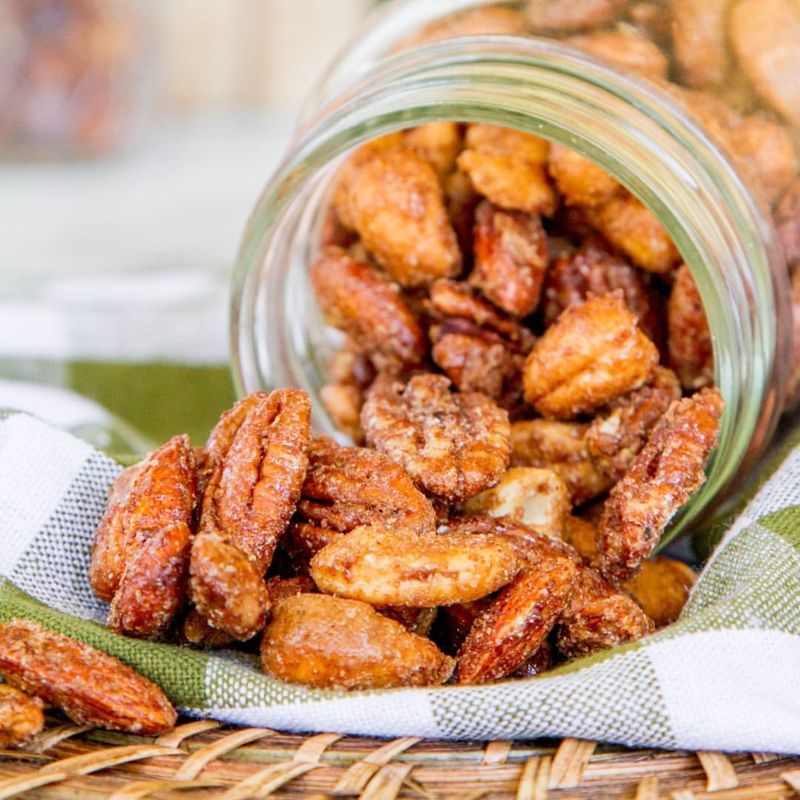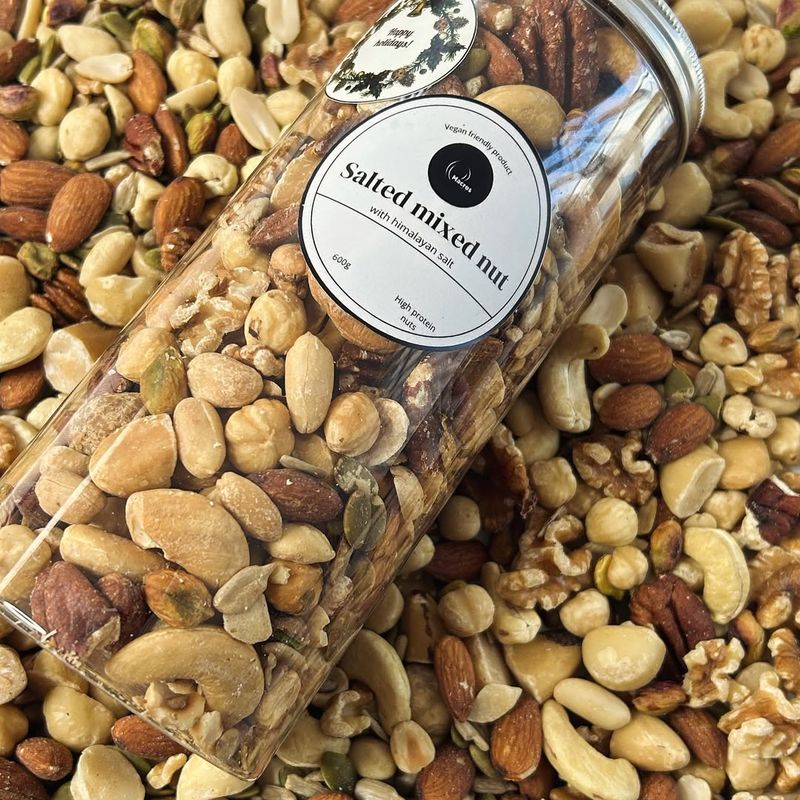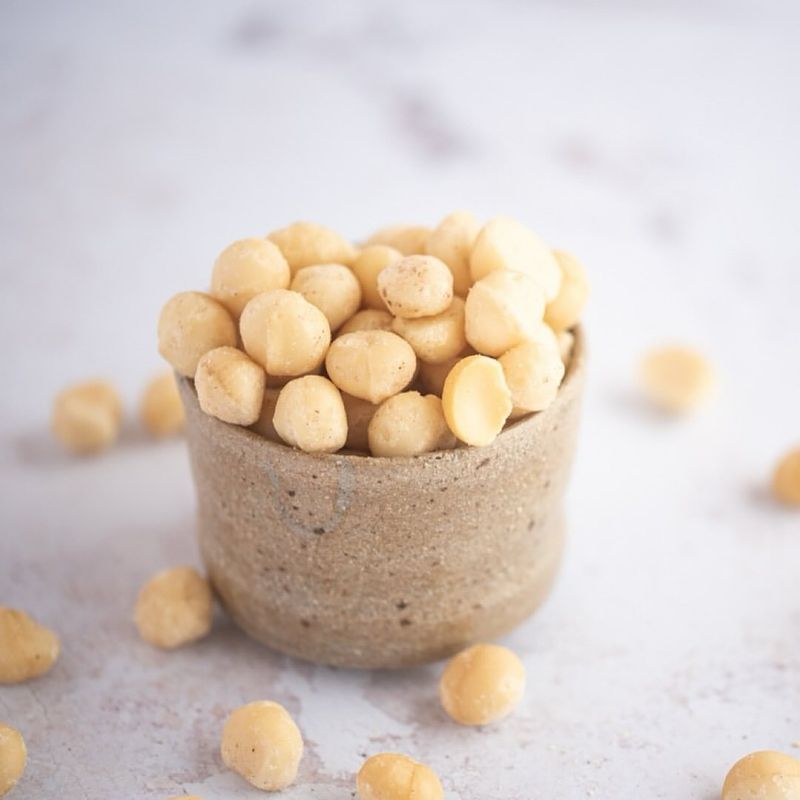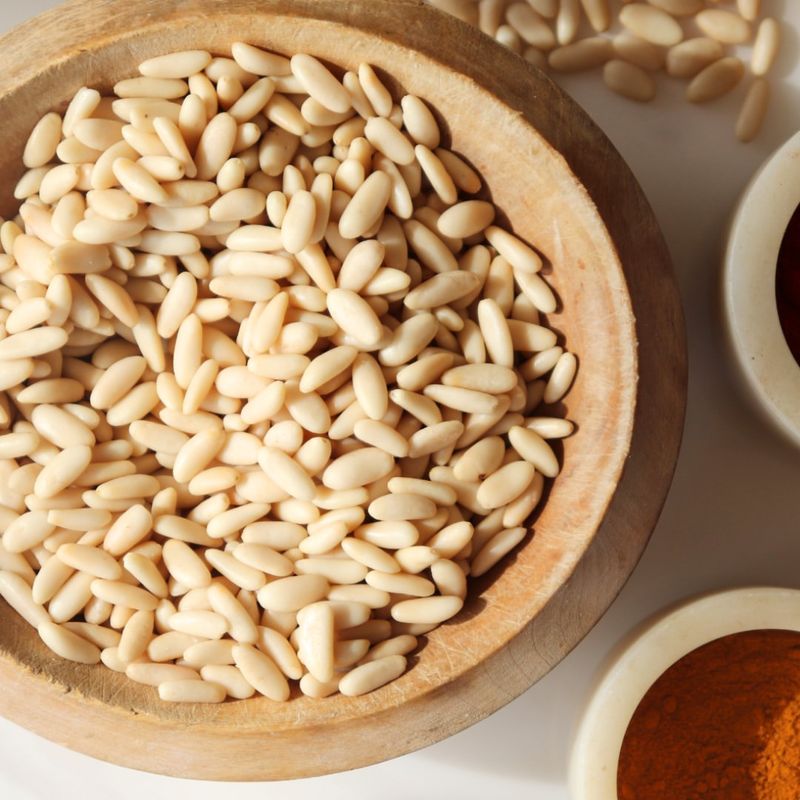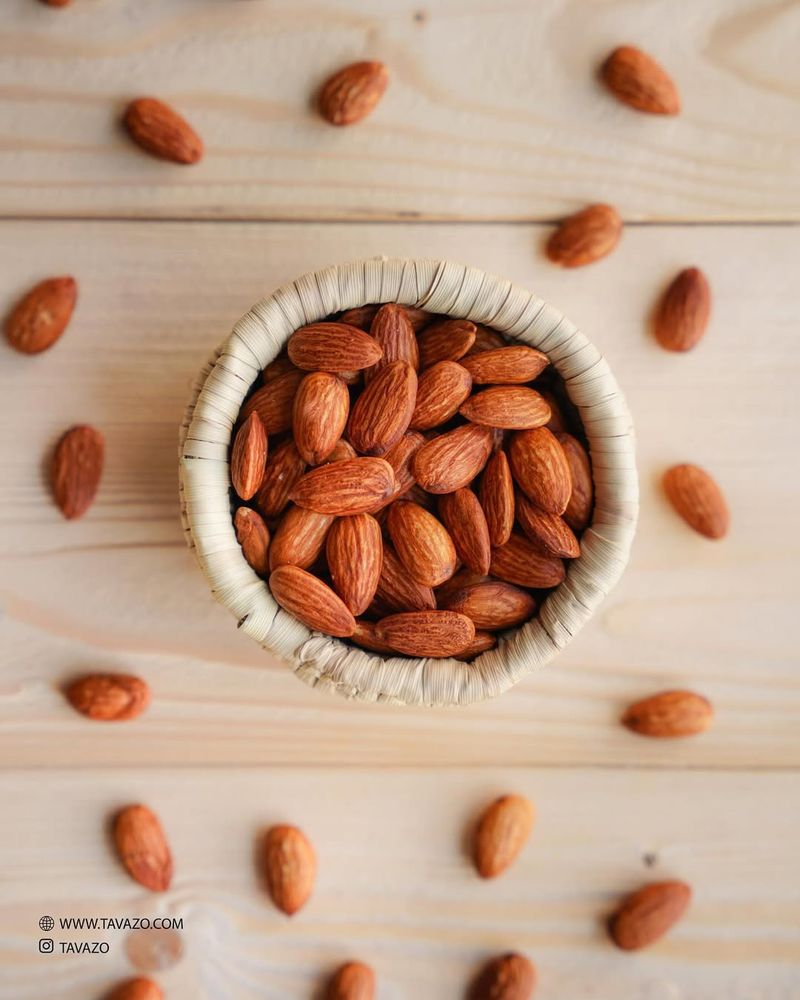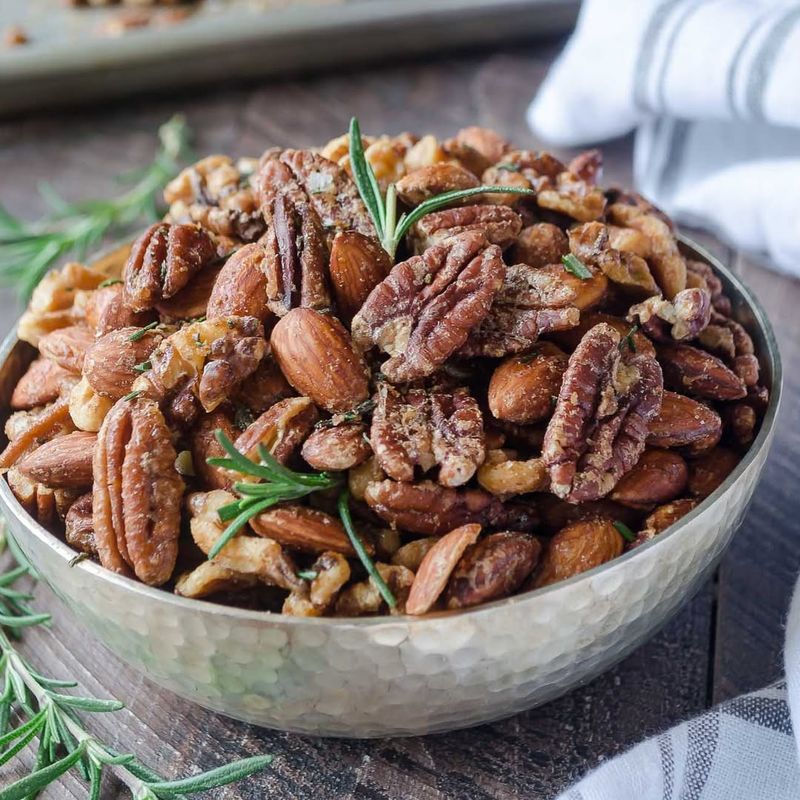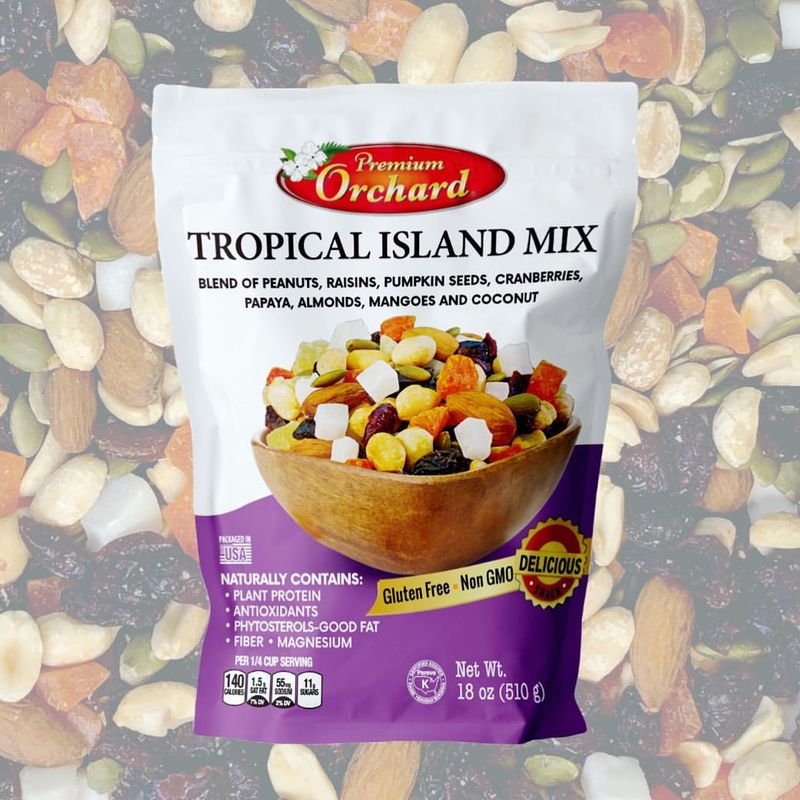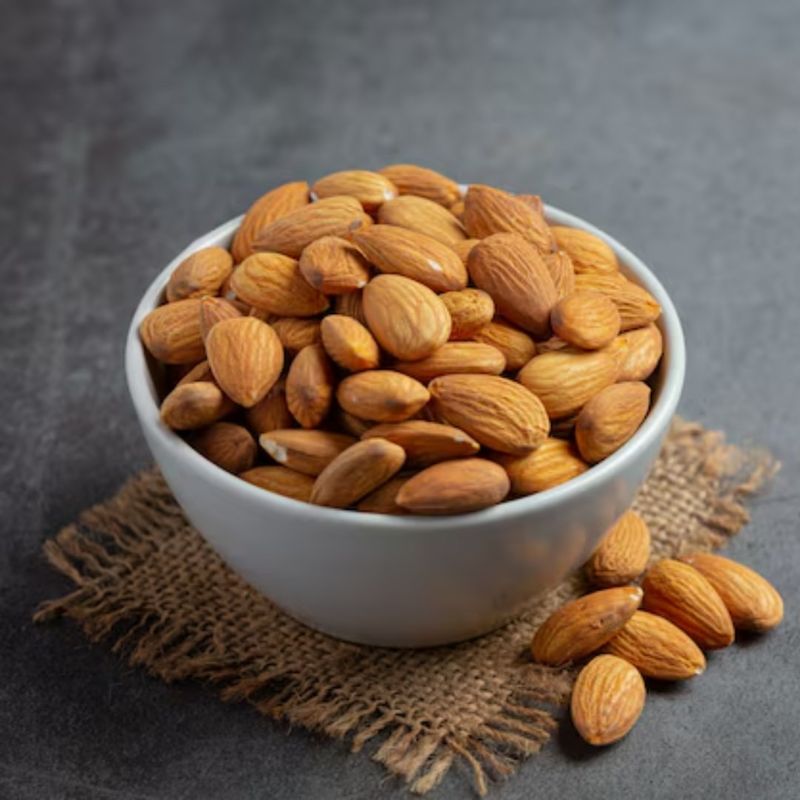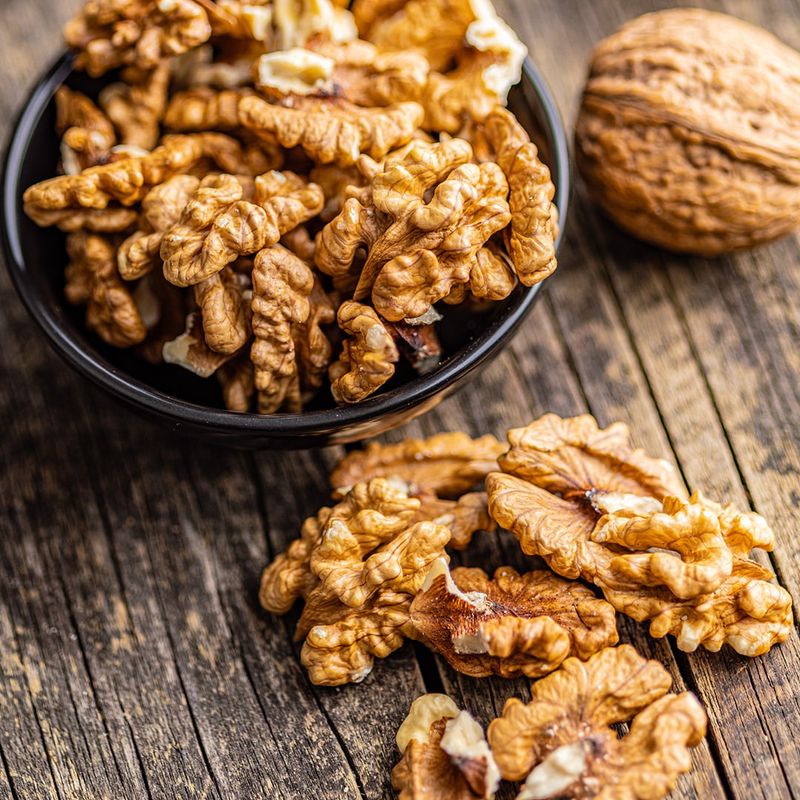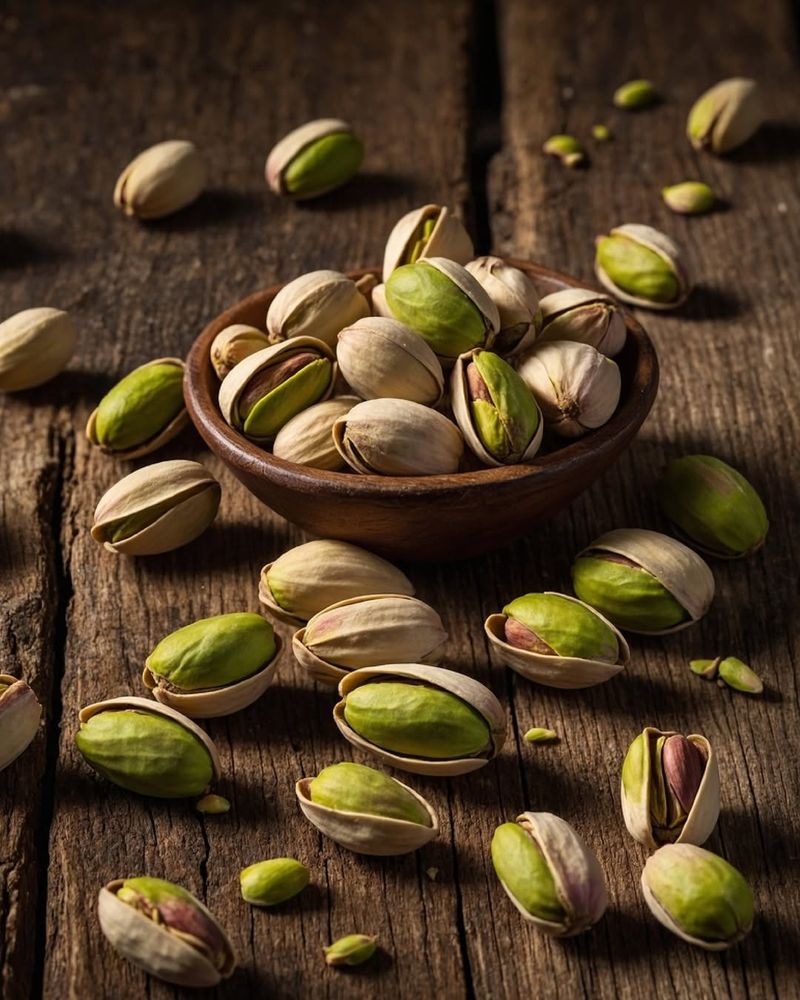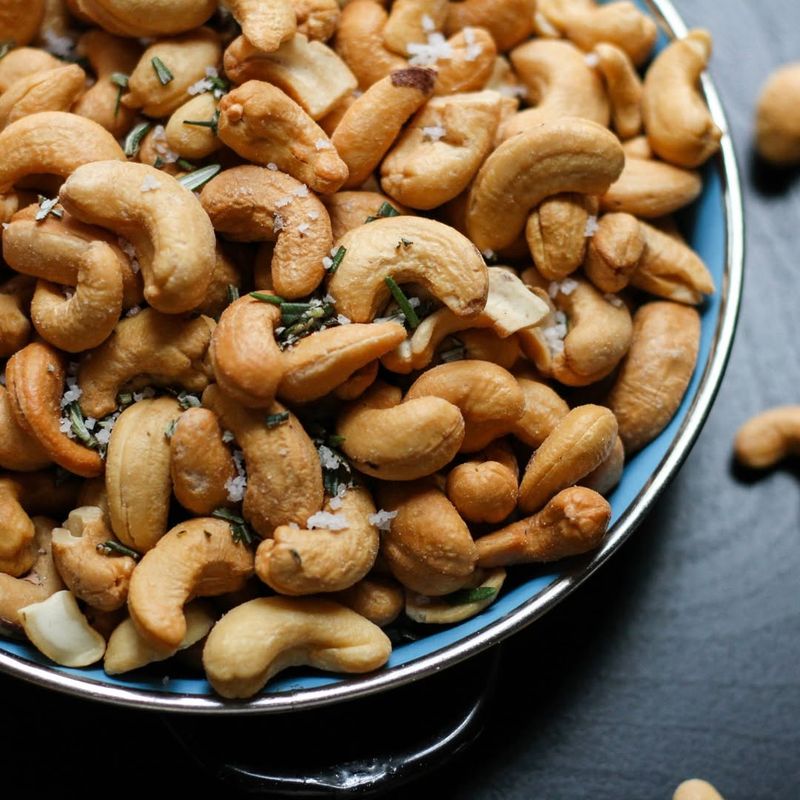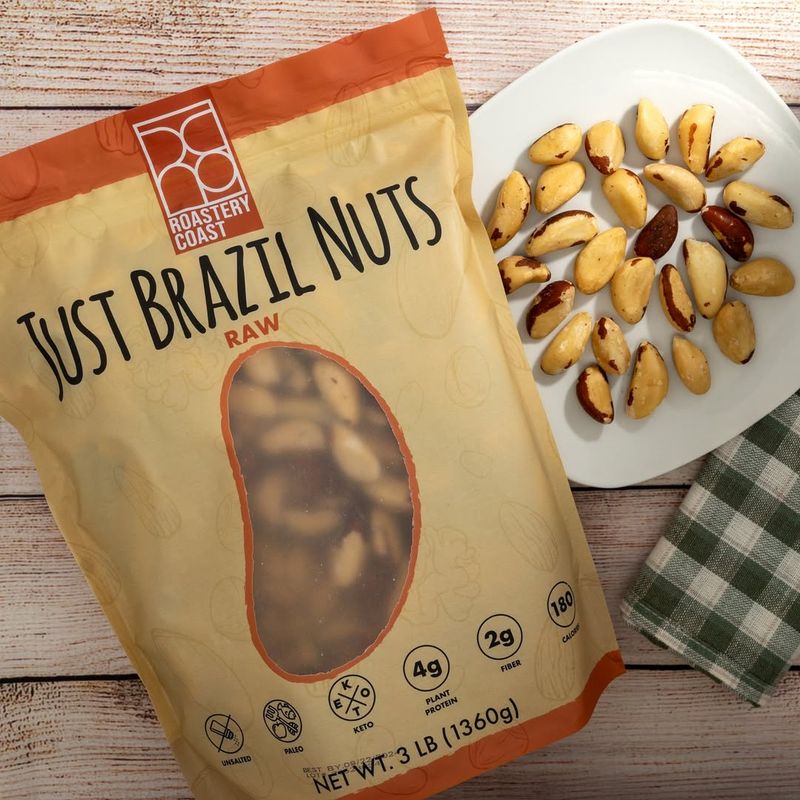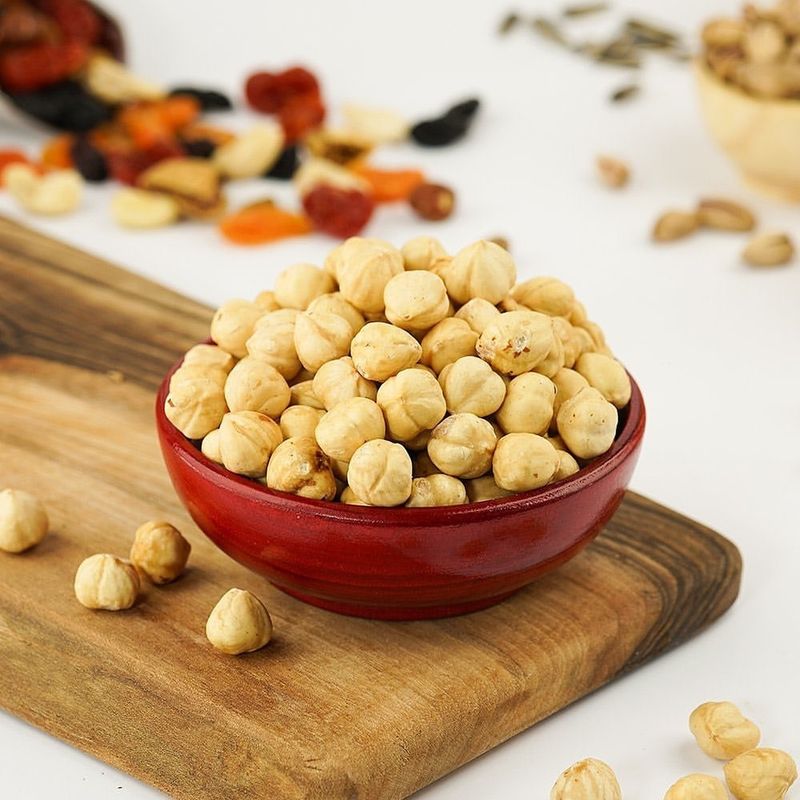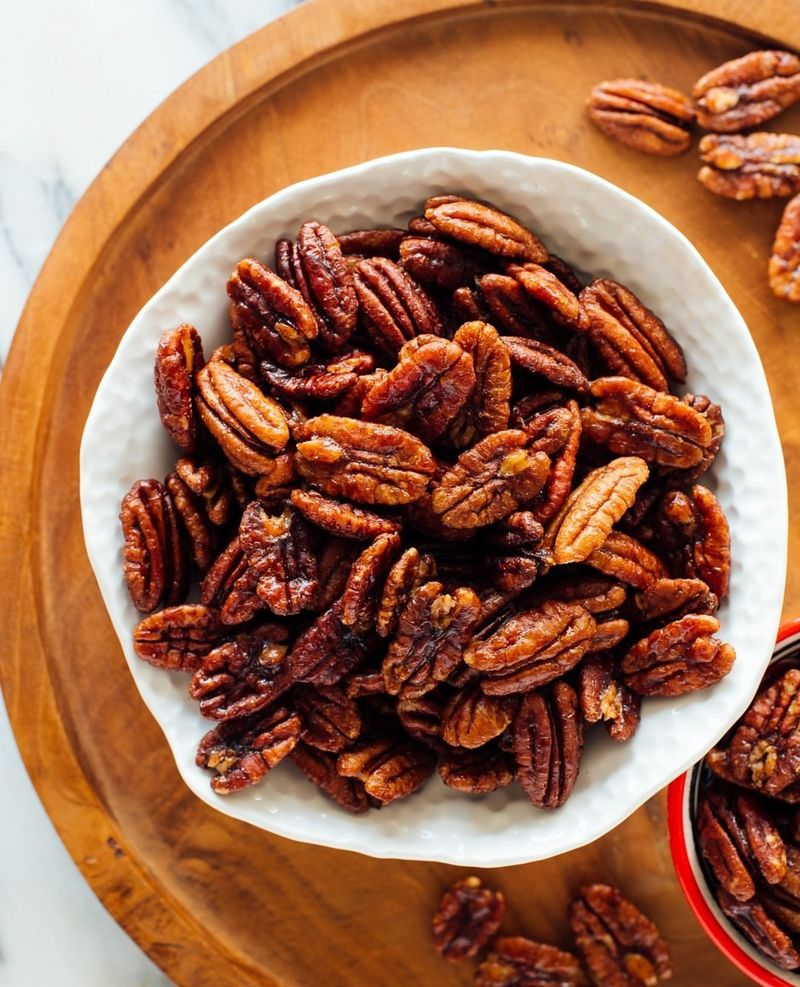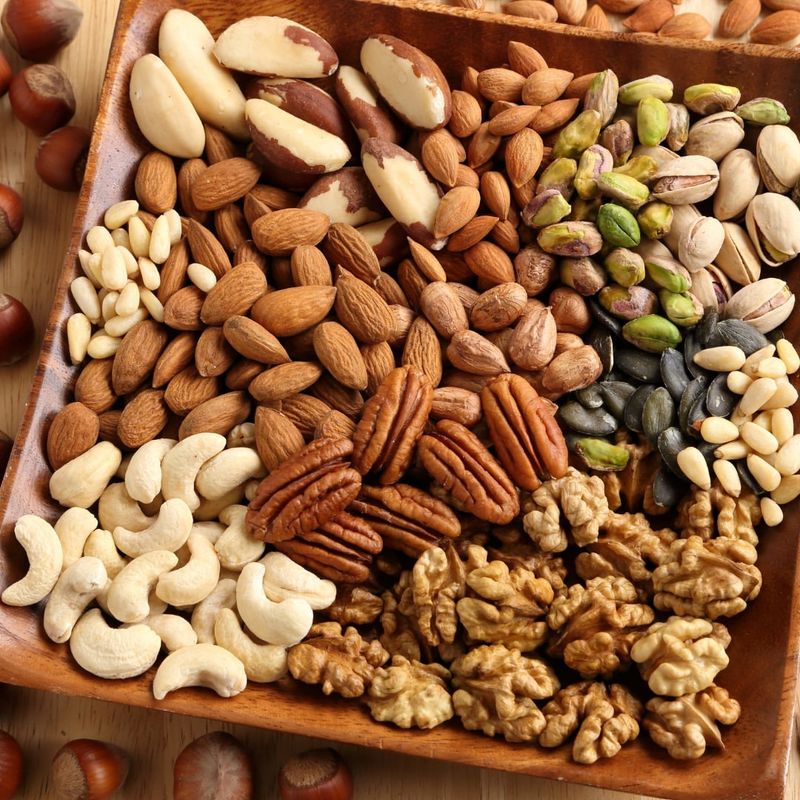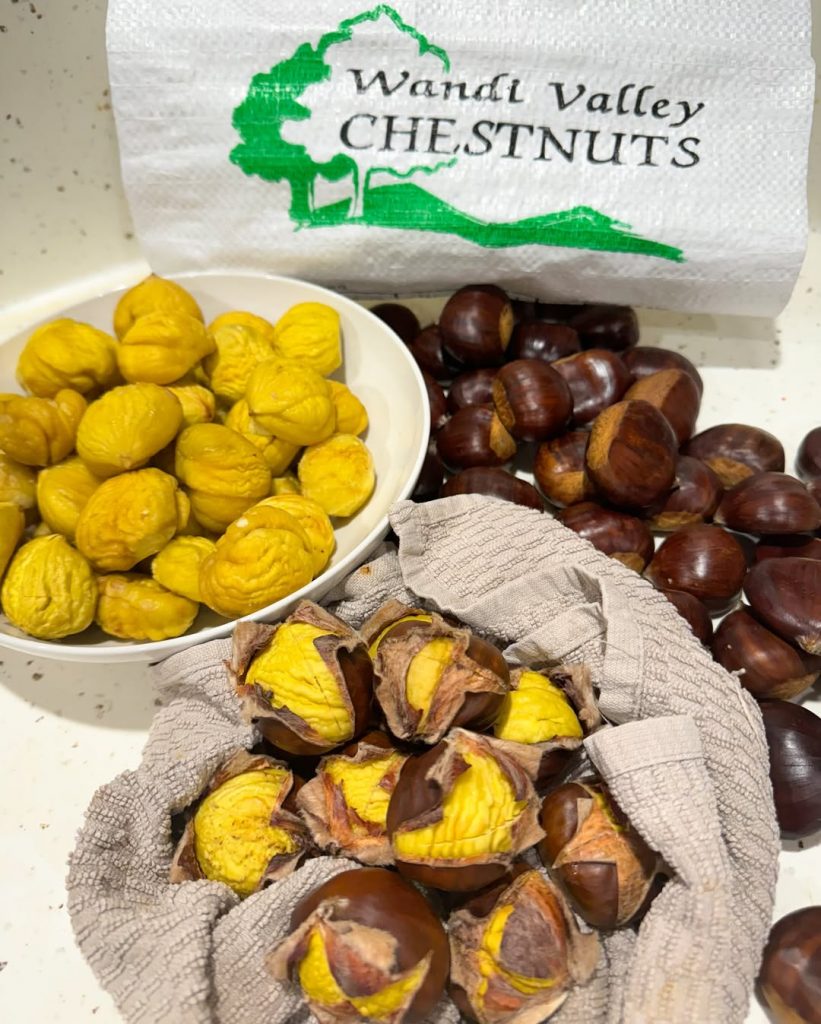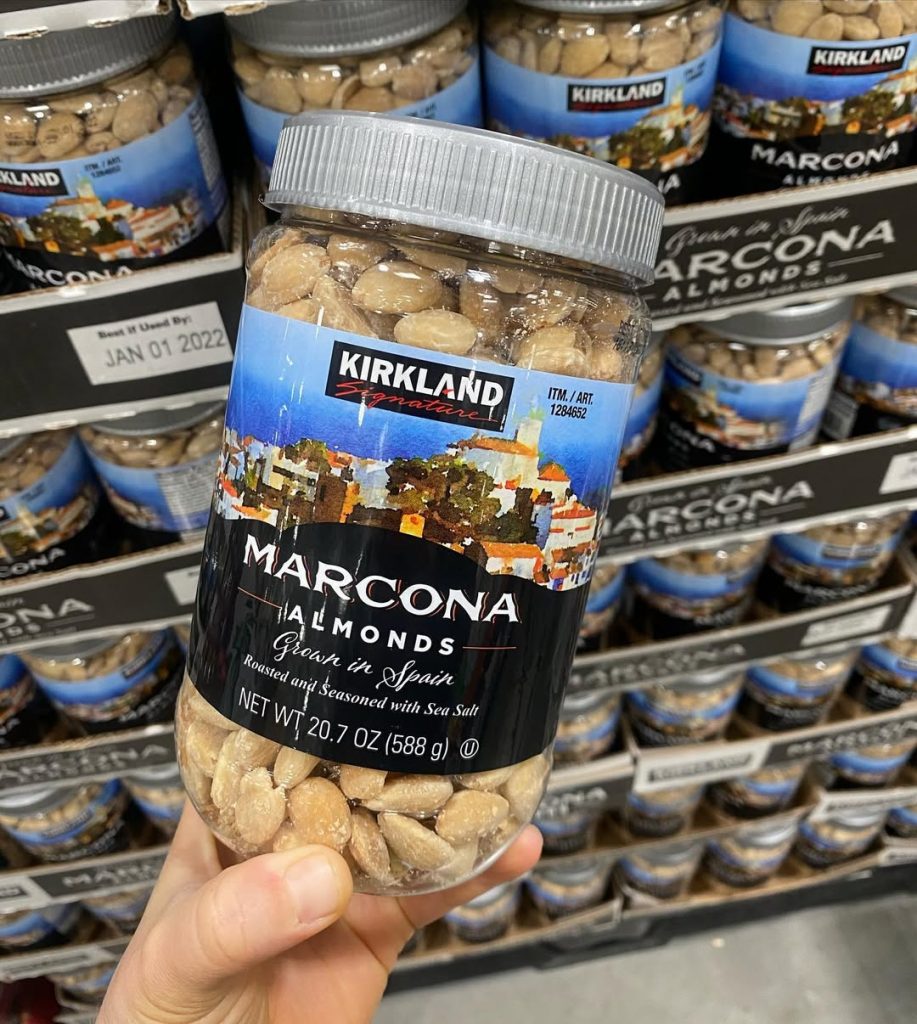If you’re nuts about health, it’s time to crack open the truth: not all nuts play nice with your body.
We’re talkin’ 8 sneaky troublemakers that’ll have you feelin’ more “uh-oh” than “oh yeah,” and 10 wholesome crunch buddies that actually bring the good vibes—boosting your brain, heart, and maybe even your dance moves. Get ready to go nuts the smart way and keep that snack game strong without the guilt trip!
1. Avoid: Sugary Nuts
Sugary nuts may tempt your sweet tooth, but they often come with added sugars and unhealthy fats. While they might taste delightful, regular consumption can lead to sugar spikes and increased caloric intake.
Instead, consider natural nuts without added sugars for a healthier option. These treats might also mask the natural flavors of the nuts, making it hard to appreciate their inherent taste. Moderation is key if you choose to indulge in these sugary delights.
2. Avoid: Salted Nuts
Salted nuts are a classic snack, but their high sodium content can contribute to elevated blood pressure and water retention. For a heart-friendly alternative, opt for unsalted versions. The salt may overpower the nuts’ original flavors, depriving you of the authentic nut experience.
If you enjoy the savory taste, try spicing them up with herbs and spices instead, providing a flavorful twist without the extra sodium.
3. Avoid: Macadamia Nuts
Macadamia nuts are delectable, yet their high fat content makes them a snack to eat sparingly. Although they contain healthy monounsaturated fats, overindulgence can lead to excessive calorie consumption.
Enjoy them as a special treat, appreciating their buttery texture in moderation. You might find their rich flavor a luxurious addition to desserts or savory dishes. Remember, balance is essential to savor these nuts without guilt.
4. Avoid: Pine Nuts
Pine nuts, often used in pesto, are nutritious but can be problematic due to their high calorie content. They are a source of healthy fats, yet consuming them in large amounts might lead to weight gain.
Use them sparingly in recipes to enhance flavor without overloading on calories. Their unique taste can elevate a dish rather than overpowering it, making them a great culinary accent when used wisely.
5. Avoid: Peanuts
Peanuts are a popular snack, yet they can sometimes trigger allergic reactions in sensitive individuals. Despite being legumes, they’re commonly grouped with nuts. When consumed in moderation, they provide protein and healthy fats.
If allergies aren’t a concern, peanuts can be a versatile ingredient in both sweet and savory dishes. Consider their nutritional benefits versus potential allergens when adding them to your diet.
6. Avoid: Bitter Almonds
Bitter almonds contain cyanide compounds, making them a risky choice for consumption. Processed forms are safer, yet natural unprocessed ones are best avoided. If you’re seeking almond flavors, opt for sweet almonds instead, which are safe and nutritious.
Awareness of their potential danger is crucial for making informed dietary choices. Their unique bitterness may be intriguing but choose safety over novelty in this case.
7. Avoid: Roasted Nuts
Roasting nuts can enhance their flavor, yet it may also reduce some of their nutritional benefits. The process can cause a loss of healthy fats and the creation of harmful compounds.
If you prefer roasted nuts, consider dry-roasting them at home for more control over the process. This way, you maintain the nuts’ integrity while enjoying their enhanced taste. Balancing flavor with nutrition helps in making healthier choices.
8. Avoid: Packaged Trail Mix
Trail mixes often promise convenience but can be loaded with sugary additions that detract from their nutritious potential. Dried fruits in these mixes may contain added sugars, increasing caloric intake.
For a healthier version, create your own trail mix, selecting unsweetened dried fruits and raw nuts. This way, you control the ingredients and avoid unnecessary sugars. Homemade versions can be both delicious and nutritious, aligning with your health goals.
9. Eat: Almonds
Almonds are a nutritious favorite, packed with vitamin E, magnesium, and fiber. They make a great snack for a balanced diet. Enjoy them raw or lightly roasted for a healthy crunch. Their versatile nature means you can add them to salads, yogurt, or baking recipes.
Whether you’re looking for a quick snack or an ingredient, almonds offer a satisfyingly nutty experience. Their health benefits make them a fantastic choice any day.
10. Eat: Walnuts
Walnuts stand out due to their rich omega-3 fatty acid content, supporting heart and brain health. Their distinct, earthy taste complements both sweet and savory dishes. A handful of walnuts can be a fulfilling snack or a topping for oatmeal and salads.
Nutritional profile makes them a powerhouse in any diet. With each bite, you’re treating your body to a mix of essential nutrients and flavors that delight the palate.
11. Eat: Pistachios
Pistachios offer a vibrant burst of flavor and color, with benefits like antioxidants and healthy fats. These little gems are perfect for mindful snacking, as shelling them can slow down consumption. Use them in desserts, salads, or enjoy them on their own.
Their unique taste and texture make pistachios a delightful addition to various culinary creations. Embrace their goodness, knowing they’re promoting better health with every handful.
12. Eat: Cashews
Cashews bring a creamy texture and rich flavor, offering essential nutrients such as zinc and magnesium. Their versatility allows them to be used in everything from cashew milk to savory sauces. Enjoy them as a snack or a cooking ingredient, knowing they contribute to a balanced diet.
With their delightful taste, cashews make it easy to indulge while staying health-conscious. Their smoothness and flavor are hard to resist.
13. Eat: Brazil Nuts
Brazil nuts are renowned for their selenium content, which supports thyroid function and immune health. Eating even a small number can provide significant nutritional benefits. Their rich, buttery flavor makes them a luxurious snack or baking ingredient.
While they’re highly nutritious, remember to enjoy them in moderation due to their high calorie count. Each bite brings a taste of the rainforest, along with health-enhancing properties.
14. Eat: Hazelnuts
Hazelnuts are known for their delightful flavor and nutritional value, offering vitamins, minerals, and antioxidants. Their sweet, nutty taste is perfect for desserts or as a standalone snack. Whether toasted or raw, hazelnuts add a delicious crunch to your diet.
Their versatility in recipes makes them a favorite among chefs and home cooks alike. Embrace the goodness of hazelnuts, enriching your meals with their unique taste and health benefits.
15. Eat: Pecans
Pecans boast a rich, buttery flavor and are packed with healthy fats, vitamins, and minerals. They’re a perfect addition to both savory and sweet dishes. Use them in pies, salads, or as a topping for oatmeal.
Their distinctive taste and texture can elevate any meal. With pecans, you’re adding a touch of indulgence while supporting heart health. Enjoy these delightful nuts, as they offer both taste and nutrition in every bite.
16. Eat: Dry-Roasted Nuts
Dry-roasted nuts are a healthier alternative to oil-roasted varieties, maintaining flavor without extra fats. They provide the same crunch and taste, ideal for snacking or cooking. Roasting at home allows control over seasoning, ensuring a nutritious outcome.
Enjoy them as part of a balanced diet, knowing you’ve chosen a method that retains the nuts’ benefits. With every crunch, you’re enjoying a flavorful snack that supports your health journey.
17. Eat: Chestnuts
Chestnuts stand apart with their mild, sweet flavor and soft, starchy texture. Unlike most nuts, they’re lower in fat and rich in vitamin C and fiber. Roasting chestnuts brings out their comforting warmth, making them a seasonal favorite and a great addition to stuffing, soups, or desserts.
Their unique nutritional profile supports digestion and boosts immunity, making chestnuts a wholesome choice when you want a nutty treat that feels a little lighter.
18. Eat: Marcona Almonds
Marcona almonds are a gourmet delight, prized for their tender texture and subtly sweet, buttery flavor. Often roasted and lightly salted, they make an irresistible snack or tapas companion. Their nutrient-rich makeup includes healthy fats, protein, and minerals like magnesium.
Incorporating Marcona almonds into your diet adds a sophisticated twist and a satisfying crunch, perfect for elevating salads, cheese boards, or simply enjoying on their own.

